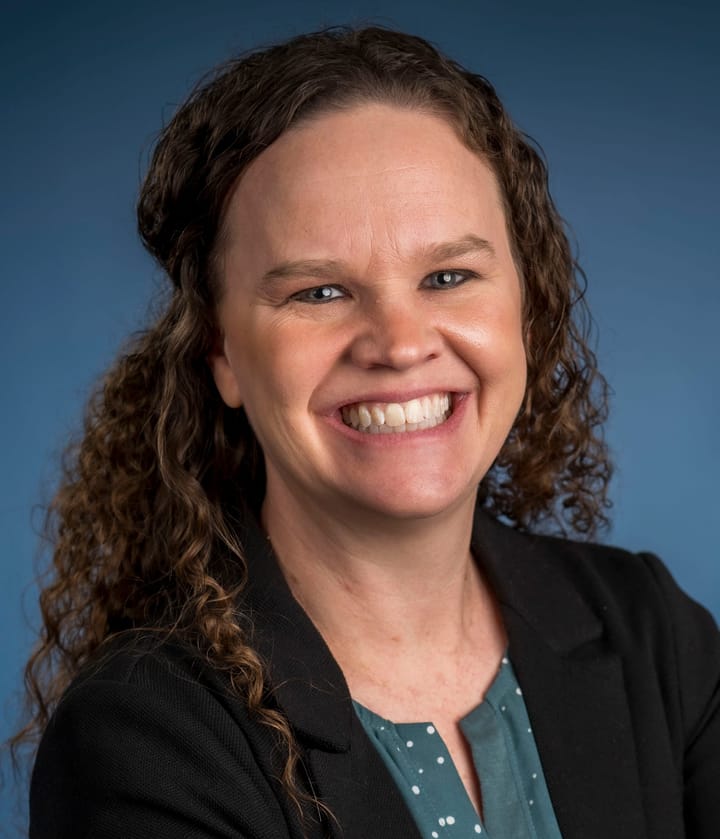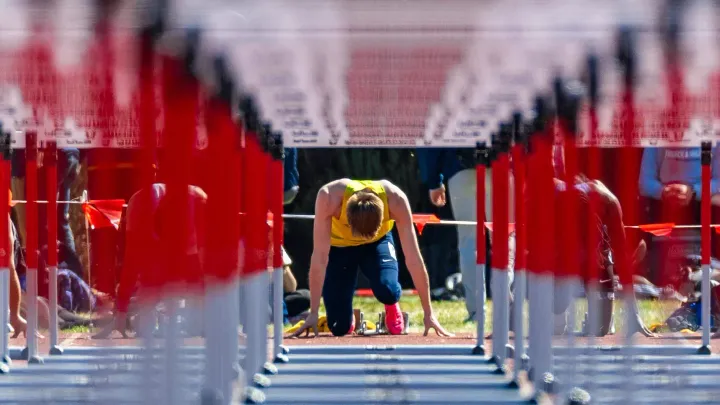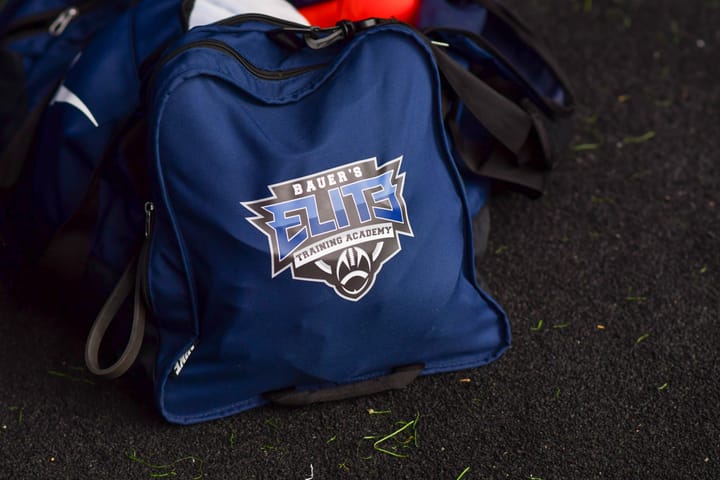‘I See’ seeks equality between men’s and women’s sports
After her eighth serve of the evening hit the gym floor without being returned over the net, Courtney Place had officially tied Augustana’s all-time record for the number of aces in a game. A 25-year-old record set by Michelle Ohrem in 1993, Place was surprised she had broken such a long-standing record and was excited to celebrate the achievement with her teammates.
Place works hard on and off the court. She spent the last eight months dedicated to creating the See Us movement, which uses social media to spread awareness about female athletes being underrepresented, sexualized and judged on appearance rather than ability.
“It was time to fight for something I am passionate about,” Place said. “I feel like female empowerment is looked down upon by many people, and I wanted to fight for the women that aren’t willing to speak up, while also creating a platform for women that do want to come forward.”
Since the conception of See Us, the campaign has grown tremendously, with more than 50 female athletes from schools as close as the University of South Dakota and as far away as the University of North Alabama committing to participation. See Us has also raised over $1,200 for the Women’s Sports Foundation through merchandise sales and volunteer work.
After receiving many questions from male athletes on how they can be involved, Place decided to launch “I See,” a new campaign that uses male voices to show support for the movement. Place said she has yet to find an Augustana male athlete to join the movement.
The name I See, “represents that the men involved see what we are doing and stand behind us,” Place said.
The I See campaign officially launched on Oct. 17 and has since received over 1,000 views on the first campaign video posted on Twitter. Place said she hopes I See will encourage more people to become involved in the movement.
Dean Schroeder, a graduate of North Dakota State University, was one of the first men to take the lead and commit to I See.
“This movement can bring to light something that male athletes may not have even thought of before,” Schroeder said. “Their female counterparts who share similar workout schedules with them, similar class schedules, similar game schedules, similar sleep schedules don’t get the type of recognition or respect that they would as men.”
Schroeder said he became involved in I See because he believes that women should get more support from their community. Powered by social media, the campaign aims to gain awareness for underrepresentation in athletics by creating videos that garner public interest, Place said.
Schroeder said he has heard negative comments made towards female athletes, which is one reason that he got involved in I See.
“I’ve heard people say women athletes are, ‘not as good as men,’” Schroeder said. “I’ve heard of people addressing extremely talented female athletes by saying ‘she’s gotta be a dude.’ Comments like those aren’t always from men either.”
Schroeder encourages Place to move forward with the movement amidst negative comments on campus and on social media. Place said someone had recently called her a “psycho feminist.”
A study conducted by researchers at Purdue and the University of Southern California revealed that there is a stark contrast between the amplified delivery of men’s sports coverage, and the often dull, matter-of-fact delivery of women’s coverage. Women’s sports coverage on ESPN Sportscenter makes up less than 2 percent of overall coverage on the channel.
Schroeder said he chooses to see female athletes not just as athletes, but as classmates and friends that are playing a sport that they love.
“A lot of people think it’s a universal opinion that male sports hold a higher importance than female sports, but even some male athletes reject that notion,” Schroeder said. “They recognize the time and effort women put into their respective sports and feel like others should as well.”
Both movements seek to address the underrepresentation of female athletes in the media.
Tyus Carter, a University of North Dakota football player, helped pilot this movement in the first social media video blast.
Carter joined I See to support female athletes around him.
“All of the female athletes I know work just as hard in their sport as I do, but they receive less recognition,” Carter said.
Schroeder and Carter also continue to look for more male athletes to join them in fighting for female recognition.
“A lot of us [male athletes] have witnessed the inequalities first hand, and it is time for us to speak up and be a part of the change,” Carter said. “The See Us movement gives us the opportunity to be on the right side of history.”
Place said she will continue to be a leader for the movement and wants to continue leading it after her time as an athlete has ended.
“After I am done playing, my goals are to create more content for social media to tell the stories that we do have, and spread the movement nationally,” Place said. “The biggest goal I have is to be featured on The Ellen Show.”
Schroeder said he believes the movement can have a positive impact on male and female athletics around the country.
“Female athletes can start to feel a sense of empowerment in the sports world, which in turn can give them a sense of worth and purpose—bearing proof that the time and effort they’re putting into their game is, in fact, worth it,” Schroeder said.
With more than 1,400 combined followers on the See Us social media accounts as well as support coming from a tweet by Cheryl Reeve, Minnesota Lynx basketball coach, it is clear that momentum is being built up nationally for the cause.
Still, Carter said there is more potential for a larger impact.
“[See Us] can positively impact people around the country by spreading awareness of the inequality between men and women’s sports at all levels by breaking the stereotypes,” Carter said. “This will lead to a cultural change in sports to help athletes support and value women athletes just as we do our male athlete idols.”
“It makes no sense to be against a movement like this,” Schroeder said. “If you’re a decent human being, then this is something you should be in support of and interested in helping change.”
Click to enlarge. Photos by See Us.



